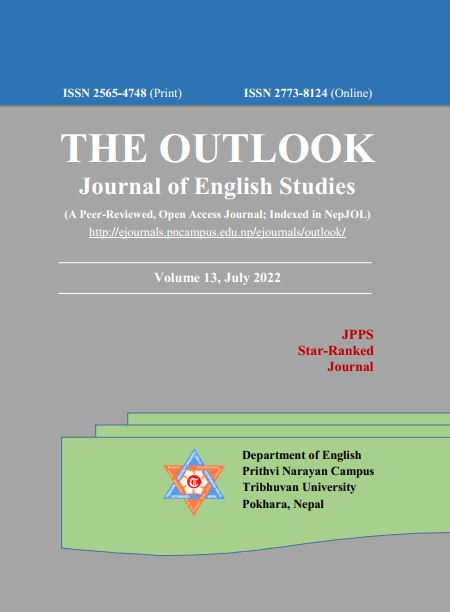Rimal and Writing the Nation: Building Democracy in South Asia
DOI:
https://doi.org/10.3126/ojes.v13i1.46691Keywords:
Rebel, new historicism, social history, voicing for change, national ethosAbstract
In his play Masan (1946), the modern Nepali playwright Gopal Prasad Rimal (1918–1973) captures the national aspiration for political change in the 1940s. He weaves a narrative in and around the protagonist Krishna as the typical member of the ruling elite. The play explores his inability to understand the dynamics of conjugal and family life at the personal level, representing the failure of the rulers to grasp the changing spirit of the society. The play sets Krishna in a politically analogous situation of the nation in which the repressive order dominates the people. Consequently, the nation searches for a new form of governance to get rid of the repression of the Rana rule. At the same time, Rimal grasps the spirit of the awakening of the South Asian countries in the process of democratization during the 1940s. He uses a very personal narrative of Krishna to discuss the impacts of larger political ideology of patriarchy in the formation of self like Helen, Bagmati, or the Bride. Presenting Krishna’s world as a microcosm for the whole nation, the playwright depicts the national political ethos in the play. The victimization of the innocent characters and the tension resulting from therein parallel the suffering of the nation. The denial of creative potential appears as the central device through which he approaches the national quest for change. Giving a new historicist reading to the play, this paper argues that Rimal’s play prepares a ground to justify the call for radical change in the existing order of the Rana regime in the 1940s in Nepal.
Downloads
Downloads
Published
How to Cite
Issue
Section
License
Copyright (c) 2022 Komal Prasad Phuyal

This work is licensed under a Creative Commons Attribution-NonCommercial 4.0 International License.
This license enables reusers to distribute, remix, adapt, and build upon the material in any medium or format for noncommercial purposes only, and only so long as attribution is given to the creator.

